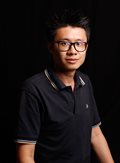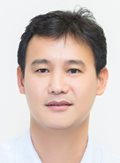
Yang Hui Ying
Associate Professor
SUTD
Dr. YANG’s research is driven by the design and fabrication of low dimensional nanomaterials. She pushes forward the boundaries of knowledge in a wide variety of fundamental materials and structure-property relationships. Her team pioneered in chemical doping, work function engineering and defect states analysis in one dimensional and two dimensional nanomaterials for a variety of applications in high efficient optoelectronics devices, electrochemical energy storage and water purification to generate economic benefits for Singapore.

Hong Yee Low
Head of Pillar – Designate (EPD), Associate Professor (EPD)
Director of the Digital Manufacturing and Design Centre (DManD)
SUTD
Hong Yee joined SUTD in 2013. Prior to SUTD, she spent about 13 years at the Institute of Materials Research and Engineering (IMRE) under the Agency for Science, Technology and Research (A*STAR). Her research interest is primarily in polymer science and engineering. She has co-authored >100 peer reviewed publications and is a co-inventor in 25 granted patents in the topic biomimetic nanoimprinting. In 2010, under the funding support from A*STAR, she led an industrial consortium on nanoimprinting consisting of 4 members from institutes of higher learning and 15 international industrial members. She had also served as a founding group head for the Patterning and Fabrication Capability Group between 2007-2010 and the Director for Research and Innovation between 2010-2012 at IMRE. Since joining SUTD her research activities have expanded to include high resolution 3-D fabrication, active and transformative micro, nano-surfaces and machine learning design of micro-, nano-surfaces and carbon capture films.

Yuen Chau
Associate Professor
SUTD
Dr Chau Yuen received the BEng and PhD degree from Nanyang Technological University (NTU), Singapore, in 2000 and 2004 respectively. He is the recipient of Lee Kuan Yew Gold Medal, Institution of Electrical Engineers Book Prize, Institute of Engineering of Singapore Gold Medal, Merck Sharp & Dohme Gold Medal and twice the recipient of Hewlett Packard Prize.
Dr Yuen was a Post Doc Fellow in Lucent Technologies Bell Labs, Murray Hill during 2005. He was a Visiting Assistant Professor of Hong Kong Polytechnic University in 2008. During the period of 2006 ‐ 2010, he worked at the Institute for Infocomm Research (I2R, Singapore) as a Senior Research Engineer, where he was involved in an industrial project on developing an 802.11n Wireless LAN system, and participated actively in 3Gpp Long Term Evolution (LTE) and LTE‐Advanced (LTE‐A) standardization. He joined the Singapore University of Technology and Design as an assistant professor from June 2010, and received IEEE Asia-Pacific Outstanding Young Researcher Award on 2012.
Dr Yuen serves as an Editor for IEEE Transactions on Communications and IEEE Transactions on Vehicular Technology, and awarded as Top Associate Editor from 2009 – 2012. He has filed 5 patents and published over 150 research papers at international journals or conferences.

Javier G. Fernandez
Associate Professor
SUTD
Javier’s research at SUTD is focused on the broad study, development, and application of biological materials in science and technology. In 2014 he was awarded the world’s most outstanding young researcher in materials science by the Bayer Foundation. He has been also awarded with the Zwick Science Award for his studies on Mechanical Testing, and best PhD thesis at the University of Barcelona for studies in the use of biopolymers in Microelectronics and Biomedicine.
After his Ph.D, Javier moved to MIT, where he developed the “Micro-Masonry”, a technology to assemble artificial organs and recognized as “breakthrough in tissue engineering” (CNET). Later, he moved to the Wyss Institute at Harvard University, where he designed and made “Shrilk“, a compostable and biocompatible material inspired by the insect cuticle. Shrilk is referred, for example, to as “one of the materials that will change the future of manufacturing” (Scientific American), a “Supermaterial” (National Geographic), and has been chosen (with graphene) one of the “five material that could change the word” (The Guardian).
Javier regularly collaborates with some of the most important international media outlets. His opinions and views on scientific issues and environmental policies have been, for example, covered in personal interviews, documentaries, and articles of National Geographic, BBC, PBS, FOX, Euronews, Discovery Channel, The Guardian, Huffington Post, Scientific American.

Arlindo Silva
Senior Fellow, SUTD Academy
Associate Professor, Programme Director for Master of Innovation by Design (MIbD) & Director of the NAMIC Hub@SUTD
Arlindo has a PhD in Mechanical Engineering and more than 25 years of teaching and research experience. His current research interests rest on engineering design, product development, creativity, materials selection methodologies, additive manufacturing in composite structures, cost modelling and management of uncertainty in design. He published over a hundred and twenty papers in journals, conferences and book chapters, more than 50 patents and authored/co-edited five books in engineering related topics. He received the MIT-Portugal Education Innovation Award in 2009 and was a Professor of Excellence at the University of Lisbon in 2009, 2013, 2014 and 2015, before joining the Singapore University of Technology and Design as an Associate Professor with the Engineering Product Development Pillar. He was also a Senior Materials Education consultant at Granta Design Ltd, Cambridge, UK, and is an active member of PDMA, ASEE, ASME, ASTM International, INCOSE, DS and SPEE. He is the current NAMIC (National Additive Manufacturing Innovation Cluster) Hub Director at SUTD, liaising Singaporean companies with SUTD’s expertise in Additive Manufacturing and Composites Technologies through the DManD (Digital Manufacturing and Design) Center.
He currently teaches Design at all levels of higher education, including executive education. He is also the Program Director for the new Master of Engineering in Innovation by Design at SUTD and a member of the Executive Committee of the Design Business Chamber Singapore. He develops his research between the SUTD-MIT International Design Center, where he co-leads the Experimental Design Thrust, and DManD.

Yeo Si Yong
Lecturer
SUTD
Si Yong Yeo received the Ph.D. in Computational Engineering from Swansea University, UK. Dr Yeo was a research scientist at ASTAR IHPC, and his research at the institute includes biomedical data analytics, image processing and structural modelling.
He was a postdoctoral researcher at Max Planck Institute for Intelligent Systems, where AI was used in the analysis of imaging data and shape modelling.

David Rosen
Professor
SUTD
David Rosen is a Professor in the Engineering Product Development (EPD) Pillar and is a co-Director of the Digital Manufacturing and Design (DManD) research centre. Prior to joining SUTD, he was a Professor and Associate Chair for Administration in the School of Mechanical Engineering at the Georgia Institute of Technology, where he served as Director of the Rapid Prototyping & Manufacturing Institute. He received his Ph.D. at the University of Massachusetts in 1992 in mechanical engineering. His research interests include computer-aided design, additive manufacturing, and design methodology. He has industry experience, working as a software engineer at Computervision Corp. and a Visiting Research Scientist at Ford Research Laboratories. He is a Fellow of ASME and has served on the ASME Computers and Information in Engineering Division Executive Committee. He is the recipient of the 2013 Solid Freeform Fabrication Symposium, International Freeform and Additive Manufacturing Excellence (FAME) Award and the co-author of a leading textbook on AM.

Soh Gim Song
Associate Professor and Director of Graduate Studies
SUTD
Dr. Soh Gim Song is an Associate Professor in the Engineering Product Development Pillar at Singapore University of Technology and Design. He is a core founding member of the Robotics Innovation Laboratory and the director of the Articulated Systems and Biomechanics group. He obtained his MSc and PhD degree from University of California, Irvine (UCI), where he researched and developed innovative computer aided design software tools for the invention of articulated mechanical systems. He had taught courses in the field of machine theory, computer aided design and manufacturing as well as engineering design processes. He was a visiting Scholar in the department of Mechanical Engineering of MIT and Associate Research Scientist at the Singapore Institute of Manufacturing Technology. Currently, he is serving as an Associate Editor for the ASME Journal of Mechanism and Robotics, the Honors and Awards Subcommitte Chair for ASME Mechanism and Robotics Committee, a Member of the IFToMM Technical Committee for Robotics and Mechatronics, and the Chairperson of Singapore Committee for the Technologies of Machines and Mechanisms.